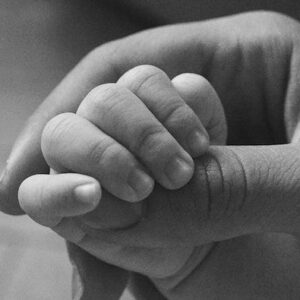Good Writing in a Bad Place: How One Incarcerated Writer Feeds His Craft
From Sullivan Correctional Facility, Robert Lee Williams Muses on Access to Literature
One evening, I walked out of the cellblock through white hallways to do some research in the prison’s general library. I live in Sullivan Correctional Facility, a maximum-security prison tucked in the Catskills. The library is spacious and bright, with rows of fluorescent lights that bathe bookcases of 12,000 books. I dropped three book returns on the inmate clerk’s desk, as Ms. Fishman, the librarian, swiveled her chair in my direction and greeted me with her Bronx accent. I smiled and asked for Charlotte Bronte’s Jane Eyre and Fyodor Dostoevsky’s Crime and Punishment.
As she looked up titles in the computer, I searched the shelves, top to bottom, not for any book in particular. I was looking for a novel with strong intent; I was on a mission to read great literature. Once I spotted the author, or the title, I would know. After a few minutes of idle browsing, I suggested to Ms. Fishman that they devote one bookcase to the classics. “We’re lucky we have books,” Ms. Fishman said. I didn’t argue. Prison libraries, no matter how scantily stocked, represent keyholes to freedom.
Ms. Fishman told me no Jane Eyre and she only had Crime and Punishment in Spanish. As time wound down, I decided not to leave empty-handed. I snatched William Zinsser’s On Writing Well, along with an uncreased copy of Charles Dickens’s Great Expectations, which was catalogued by the library in December 2020. The lonely ink-stamp of February 20, 2023, smeared on the due-date card on the inside back cover, revealed not only that I was the first and only person to borrow the book, but that I had two weeks to finish it.
Prison libraries, no matter how scantily stocked, represent keyholes to freedom.The real reason I ventured to the library was because I read a Q&A in the New York Review of Books in which John J. Lennon, a prison writer at Sullivan and contributing editor for Esquire, interviewed Reginald Dwayne Betts, a formerly incarcerated man who’d become an attorney, poet, and 2021 MacArthur fellow. They discussed Freedom Reads, the nonprofit that installs curated micro-libraries in the cellblocks of prisons across the US.
The 500-book selections include classic works of literature, with fresh forewords by famous writers. We didn’t yet have one of these mini-libraries in Sullivan’s cellblocks, but I wondered what reading some of these handpicked classics might do for me. To write well, John told me, I had to read well. I wanted to become a writer, an artist, something more than this guy who was reckless and killed someone. Literature was a good place to start.
In the article, Betts mentioned the titles of some notable books without mentioning the names of their respective authors, and the names of some authors without mentioning the titles of their books, so I put on my curator cap and set about to match titles to names and names to titles.
My next trip to the library, I brought a short list of names and titles in my notebook. I quickly found an unused copy of James Joyce’s Dubliners in the fiction section, its pages stiff as a paper bag’s. The next author on my list was Victor Hugo. I’d spotted his last name on the spine of a hefty Norton Anthology of World Masterpieces, so I grabbed it off the shelf, skimmed through it and came across his poem “Memory of the Night of the Fourth.” In it, Hugo depicts a grandmother grieving the senseless slaughter of her innocent grandchild after Napoleon Bonaparte’s soldiers marched across Paris killing everyone, saying “Isn’t it enough to break your heart? Are they going/ To start killing children now? Oh then/ They are truly villains.” Of course this made me think of today’s uniformed villains who shoot unarmed kids who look like me. I then found Hugo’s Les Misérables, thick as a phonebook.
I wanted to become a writer, an artist, something more than this guy who was reckless and killed someone. Literature was a good place to start.In the Norton Anthology there was also an in-depth biography of Dostoevsky. I learned that he spent a portion of his life incarcerated doing hard time in labor camps and long periods in isolation. He was almost killed by a firing squad. His book, Crime and Punishment, shot to the top of my list. Since I don’t read Spanish, my family would have to order it from Amazon, or I would have to use the interlibrary loan program that allows prisoners to borrow books from local libraries. You write down the author and give it to the librarian, who searches the catalogue of the nearby libraries. The service is free, so I chose the latter.
The architecture of Sullivan’s cellblocks is ideal for a Freedom Reads microlibrary. As I write this essay in my cell, I’m looking at what’s going on in the common area, which I can view from my cell on the second tier, with a mezzanine view. Two tiers of cells wrap an octagonal area of tables. There’s two TVs, some phones, a kiosk for us to sync our tablets and send messages. Four men play dominos. Two are studying for their college class.
What if there was a Freedom Reads curated library here?
I imagine stepping only a few paces out of my cell. I’d maybe see a fellow prisoner who’s pulled Dubliners from the shelf. My favorite story was “An Encounter,” I’d tell him, about two boys who played hooky. Who never did that? Maybe we’d reminisce about how we skipped school, scuffled with other kids who ran wild and reckless through the streets; the mangy addicts we avoided like the mad homeless man in the story. We’d discuss our favorite characters, and what made them feel real; their conflicts and desires; the individual themes within the stories—mental illness, homelessness, alcoholism, child abuse, the comfortability of reclusiveness, love and regret. He’d share a passage from “A Painful Case,” one line in the story about James Duffy, who’d secluded himself away from everything modern, in a home described like a cell, until he met a woman whose friendship had “worn away the rough edges of his character, emotionalized his mental life.” Then at one point in the story, when Duffy broke off their friendship, we’d share the depth in this line: “He heard the strange impersonal voice which he recognized as his own, insisting on the soul’s incurable loneliness.”
Maybe he’d express the same loneliness he felt during the height of the Covid pandemic when they suspended visits in the prison and he couldn’t see his girlfriend or mom. Ear hustlers outside the Freedom Reads Library would likely find our conversation interesting enough to chime in: “What’s that book you two are reading?”
Books release my imagination from confinement.About two weeks after that library trip, on a sunny Saturday, I spun the perimeter with John. Guys grunted and slammed weights; we discussed projects we were juggling. I was reading the story of Pip and his great expectations, and writing a review of Julia Haart’s Brazen. For John, it was Bad City by Paul Pringle and Sarah Weinman’s Scoundrel, which he reviewed in the New York Review. I digressed into a description of Hugo’s Les Misérables. He explained to me the importance of discovering my own voice, like when I was discovering my own swagger on the block, coming up under the older homies in my hood. But this is a more mature discovery of self. I realize how fortunate I am to have access to someone like John. In prison, not everyone has someone to point the way to good literature and good writing.
Books release my imagination from confinement. I travel to 19th-century England, to a bazaar held in Dublin. I land in Paris, where I live vicariously as Jean Valjean, a criminal redeemed, first through decree, then by his good works.
What if I had access to the entire Freedom Reads Library? As I write this, a correctional officer slaps a note on the food slot of my cell as he passes by. It’s from the library: Crime and Punishment has arrived.




















